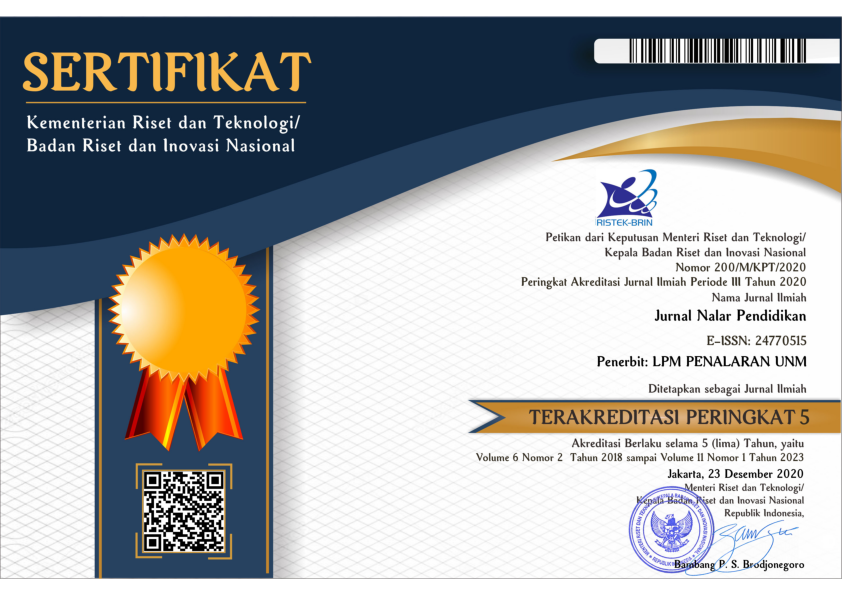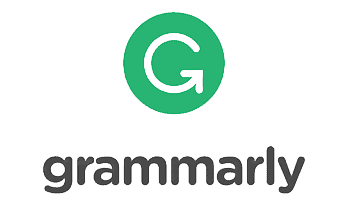Statement of Publication Ethics and Malpractice
Jurnal Nalar Pendidikan is a journal that aims to be the leading peer-review platform and authoritative source of information. We publish original research papers, article reviews and case studies that focus on education and related topics that have not been published elsewhere in Indonesian or English, nor are they reviewed for publication anywhere. The following statement explains the ethical behavior of all parties involved in publishing articles in this journal, including authors, editors, reviewers, and publishers. This statement is based on the COPE Best Practices Guidelines for Journal Editor.
Duties of Editor in Chief
-
Coordinate the distribution of writing that goes to members of the Editorial Board.
-
Hold a limited meeting to determine the printable writing.
-
Control the performance of members of the Editorial Board.
-
Determine and define Bebestari Expert Editors and Partners.
- Manage and develop journals in the Open Journal System (OJS) and the Journal Indexing Agency
Duties of Section Editor
- The editor is in charge of editing the incoming article, adjusting the draft and template of the journal and sending back the rejected or corrected writing.
- The Expert Editor has the duty to select, clarify the writing to be published, provide a record of the reasons for the rejection of the writing and fill in the journal assessment sheet.
Duties of Reviewers
-
Review the manuscript
The reviewer reviews the manuscript within the time allotted and complies with the shipping guidelines and principles of scientific publication. -
Revise the Script
Encourage the author to revise the manuscript by providing criticism, suggestions, and recommendations.
Keep the privacy of the writer by not publishing the results of reviews, suggestions, and recommendations. -
Provide a Record of Acceptance and Rejection of the Script
The reviewer must include a record of whether or not the manuscript was received and fill out a journal assessment sheet.
Duties of Administration
- Manage and control all correspondence and finance in the Journal of Reason Education.
- Bringing together the edited article into the Journal of Educational Reason.
- Submit the final results of the Journal of Reasoning Education to the printing press.
- Submit a hardcopy of the Journal of Educational Reason to the author.
- Sending hardcopy of the Journal of Reasoning Education to LIPI.
Duties of the Authors
- Author collectively responsible for the work and the content of the article which cover methods, analysis, calculation, and its details.
- Author immediately responds to the comments made by the peer review professionally and timely.
- Author should inform the editor if they retract their paper.The author describes the limitations in the study.
- Author respects the publishers if they demand to not to publish the findings in the form of interviews or through any other media before the publication.
- The author informs the editor of (a) paper that is part of a phased research, multidisciplinary, and different perspectives.
- The author makes a statement that the papers submitted for publication is original, has not been published anywhere in any language, and not in the process of submission to another publisher.
- If there is any error in the paper, the author should immediately notify the editor or publisher.
- The use of materials from other publications which is copyrighted, should be given a written permission and gratitude.
- The author refers to the work of others as appropriate in citations and quotations which used in the paper.
- When delivering new discoveries or improving inventions the authors should mention the job previous researcher/writer/founder.
- The author is not allowed to give a bibliography of the publications if they do not read the publication.
- If requested, the authors prepared the proof that the research has already met the requirements of the research ethics including the field notes.
- Author adequately responds if there are any comments or feedback after the paper published.





